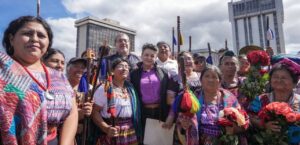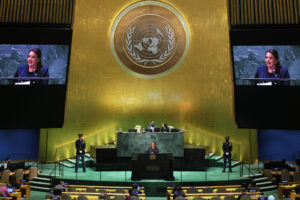WOLA Statement
In the early morning of Sunday, September 23, Antonio Trejo Cabrera—a lawyer who defended the land rights of local peasants in the Bajo Aguan region of Honduras—was shot five times outside a church where he was attending a wedding. He later died at a hospital as a result of his injuries. WOLA strongly condemns the murder of this respected Honduran human rights defender. Against the backdrop of an ongoing conflict between large landholders and peasant communities in the Bajo Aguan, Trejo worked as the legal representative for the Authentic Peasant Reclamation Movement of Aguan (Movimiento Auténtico Reivindicador del Aguán, MARCA), a group that has struggled for years to win legal recognition of their land rights. He frequently denounced attacks against these communities and the lack of justice in these cases. Although the government has formally recognized the communities’ legal right to much of their land, the communities continue to suffer political and physical attacks from private security forces linked to the large landholders, as well as from public security forces.
Trejo’s murder comes just one month before he was scheduled to testify on the land conflict in the Bajo Aguan before the Inter-American Commission on Human Rights in Washington, DC. Despite the Honduran government’s assertions that the land conflict in the Bajo Aguan ended in 2011—and that the violence in the region since then has been due to local criminal groups seeking control over potentially profitable land—the ongoing attacks against those seeking to defend the legal, political, and human rights of rural communities suggest that the land conflict is far from being resolved and that the Honduran government has not made the necessary effort to address the issue in a way that ensures justice and respect for human rights.
There have been more than 50 killings of community members and human rights defenders associated with the land conflict in the Bajo Aguan since elected President Manuel Zelaya was forced from office on June 28, 2009. These include the 2011 murder of MARCA leader Secundino Ruiz Vallecillo and the August 2012 murder of Jose Braulio Diaz Lopez, secretary of the Associative Peasant Enterprise of El Tranvio and member of the Unified Peasant Movement of Aguan (Movimiento Unificado Campesino del Aguán, MUCA). None of these cases have been resolved. The police’s inability to effectively investigate crimes, as well as the lack of an effective, rights-respecting police presence, gives human rights abusers a free pass. Even when police do make arrests, Honduras’ deeply flawed judicial system repeatedly allows those charged with human rights-related crimes to avoid punishment for their actions. Thus, crimes like the killing of Antonio Trejo continue to take place.
The government of Honduras must investigate the murder of Antonio Trejo—as well as the many other unsolved murders of human rights defenders, journalists, and members of civil society in Honduras, such as Manuel Eduardo Diaz Mazariegos, a specially designated public human rights prosecutor who was murdered on September 24, 2012—and ensure that both the material and intellectual authors of these crimes and human rights violations are brought to justice. The Honduran government must, at a minimum, demonstrate that it possesses the political will to investigate and prosecute this case in order to show that it is serious about stopping attacks against human rights defenders.


